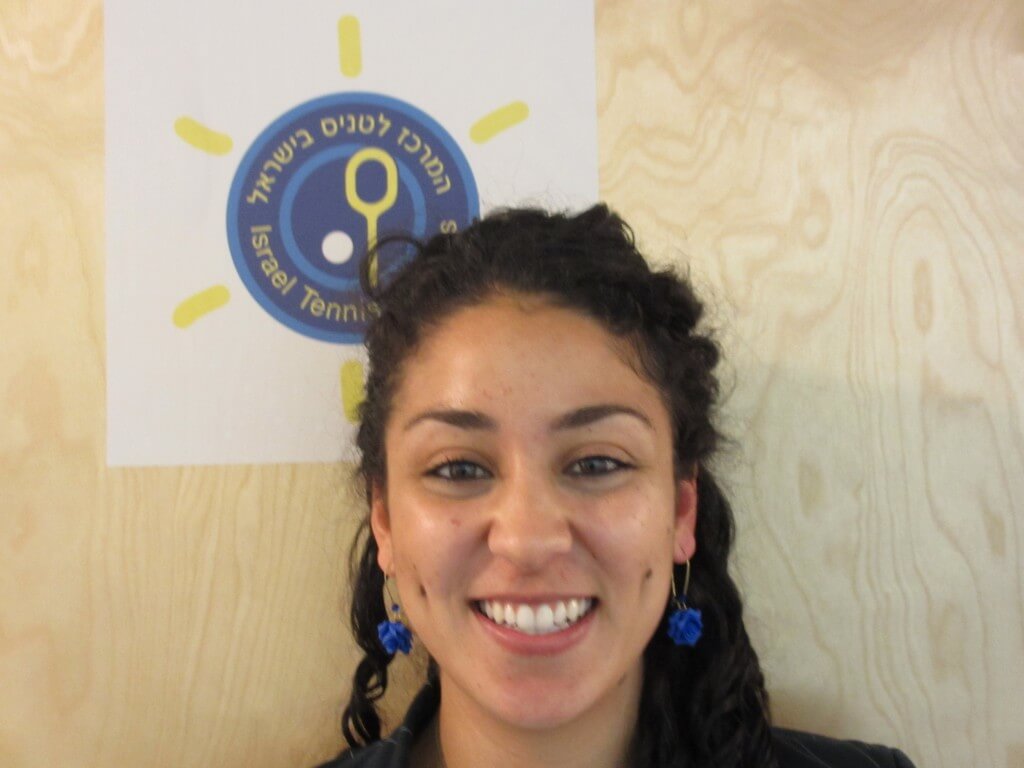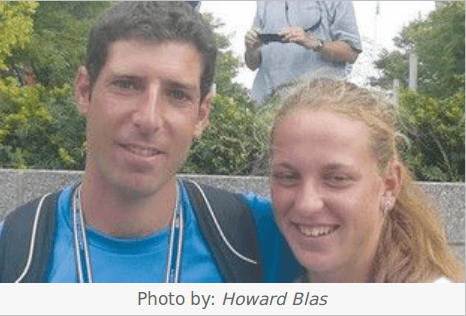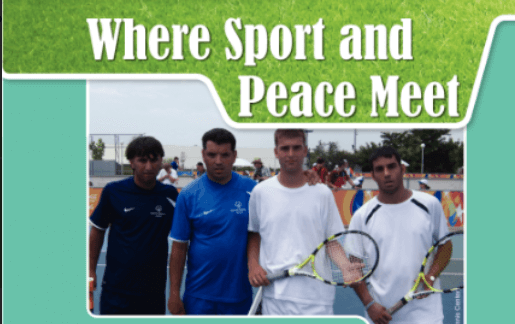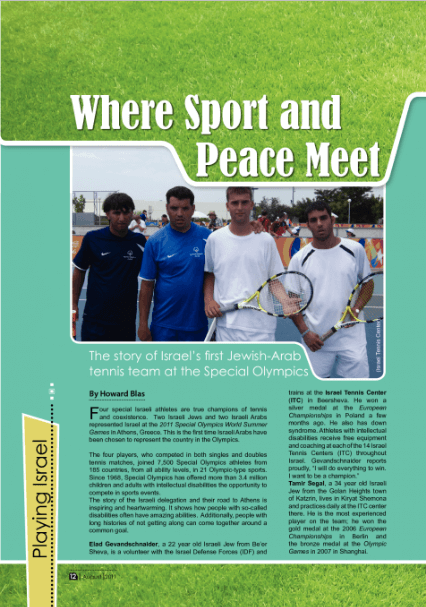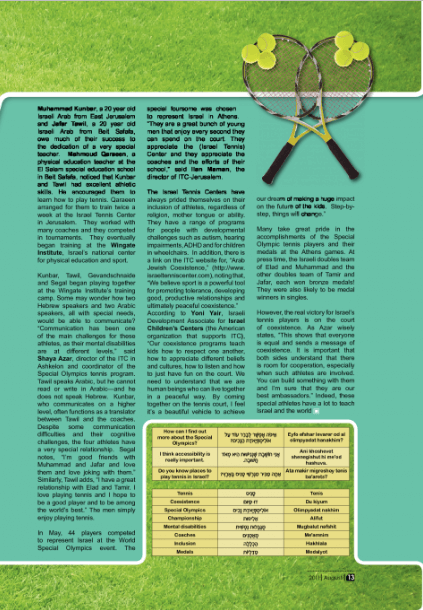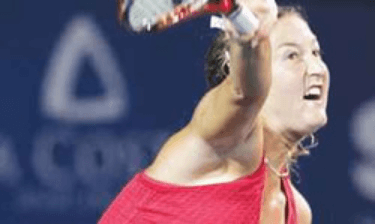Nadine Fahoum, a Muslim from Haifa, has become Israel’s unofficial ambassador off the court, and a phenom for Duke on it.
For Nadine Fahoum, serving as an ambassador for Israeli tennis and the State of Israel is a pleasure — though anything but straightforward. The 22-year-old Muslim Israeli-Arab from Haifa recently graduated from Duke University in Durham, North Carolina, where she majored in business administration and received a certificate in marketing and management. While there she also found the time to rank number one in tennis singles and helped the Lady Blue Devils tennis team to a national ranking of number three.
Fahoum also served as a de facto Jewish studies teacher and spiritual adviser to three American Jewish teammates. “They asked me about the Jewish holidays and when the Yom Kippur fast begins and ends,” says Fahoum, who regularly visited the Freeman Center for Jewish Life and participated in campus groups such as “Peace or Pieces?” — a forum for Jewish and Muslim students’ “controversial issues.”
‘I was the only Arab kid in school until my brother enrolled in the same school a few years later’
Fahoum got an early start feeling comfortable in the Jewish world. Her parents — mother Wafa Zoabi, a lawyer, and father, Anan, a bakery owner — sent Nadine and her younger brother to Haifa’s prestigious Reali Hebrew School. “I was the only Arab kid in school until my brother enrolled in the same school a few years later.”
Her brother, Fahoum Fahoum, 20, has continued to follow in his sister’s footsteps. Fahoum currently studies economics and plays tennis at Old Dominion University in Norfolk, Virginia — the university Nadine transferred from to play tennis at Duke.
“When Fahoum was a junior, I took him and three Jewish kids to play in a tennis exhibition in Boca Raton, Florida,” recounts Shaul Zohar, manager of the Israel Tennis Center in Kiryat Shmona. “We were at a Shabbat dinner and the host asked, ‘Who wants to do the blessing over the wine?’ The three all said no — and so Fahoum did the kiddush!”
Nadine and Fahoum have represented Israel in over thirty countries — starting with her first tournament in France at age 14 and including Switzerland, Portugal, Greece, and India. And they are not told what to say on behalf of the State of Israel.
“I say what I think,” says the polite, soft-spoken Nadine. “I have heard both sides my whole life. We all want the same thing — to live in peace.”
“We need to find a solution as soon as possible. It is a tough situation. We have to start where we are and look forward, not backward, and move forward from here.”
When asked what she would recommend as a solution, she pauses, carefully considering her reply. “We must learn from an early age to live together, when we are not prejudiced. That is why programs like the coexistence programs at the Israel Tennis Center are so important.”
She explains how its initiatives, such as the Twinned Peace Kindergarten, bring children and their families together in meaningful ways. “They go to each other’s houses, do homework together and travel to tournaments together.”
It has not always been easy. Many years ago, at New York’s JFK airport, security officials noted Fahoum’s name and asked to inspect her luggage. Coach Zohar intervened and said, “We are all the same — if you check her bag, you must check all bags. Check all or leave her alone!’” She was allowed to pass without inspection. Israeli security has subsequently invited Nadine’s mother to offer workshops to security personnel on how to treat minorities.
Nadine recently began working as a development associate in New York City for the ITC. “If there were 10,000 Nadines, the [Israeli-Arab] situation would be different,” says Zohar.
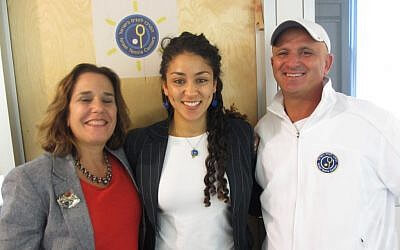
“I’m sure there are — we just have to identify them and have them speak up,” adds Nadine.
“We have to encourage them to speak up,” adds Jacqueline Glodstein, vice president of global development for Israel Tennis Center.
Nadine has been living with Glodstein and her family in their Long Island home for the past six months. The family, whose members have all spent significant time in Israel, has found it very enlightening. Glodstein says, “We never had an opportunity to get to know on an intimate basis an Arab Israeli Muslim. It was an amazing opportunity for all of us. Living together, you just begin to know each other in a very special way — you create relationships and bonds.” The Fahoum parents also stayed in the Glodstein home for a e week during a recent trip to the United States.
For now, it is back to work for Nadine. While she will be focusing on her ITC responsibilities, she will still manage to find time for tennis. “I love tennis — I will always play!”
(Source: http://www.timesofisrael.com)
